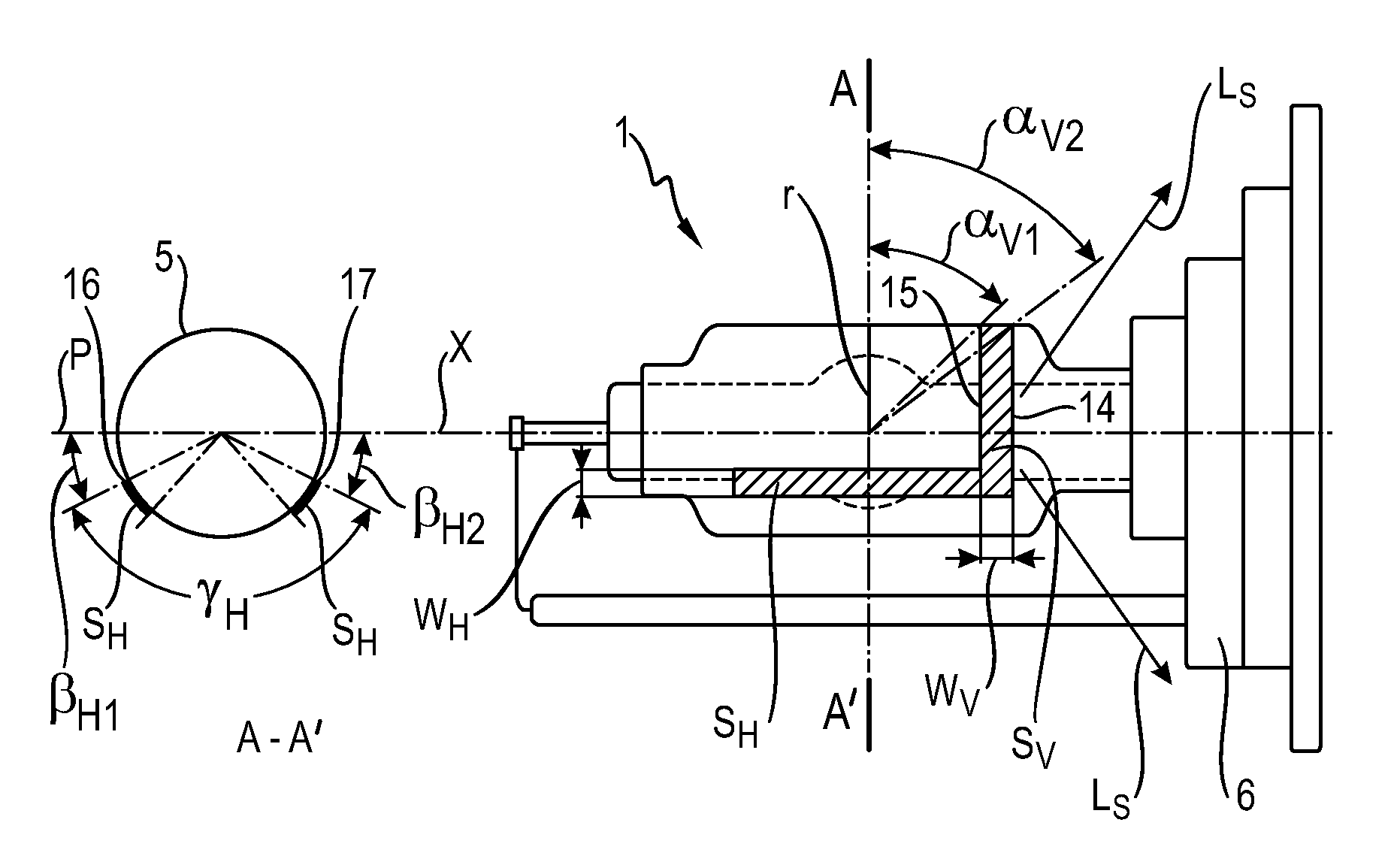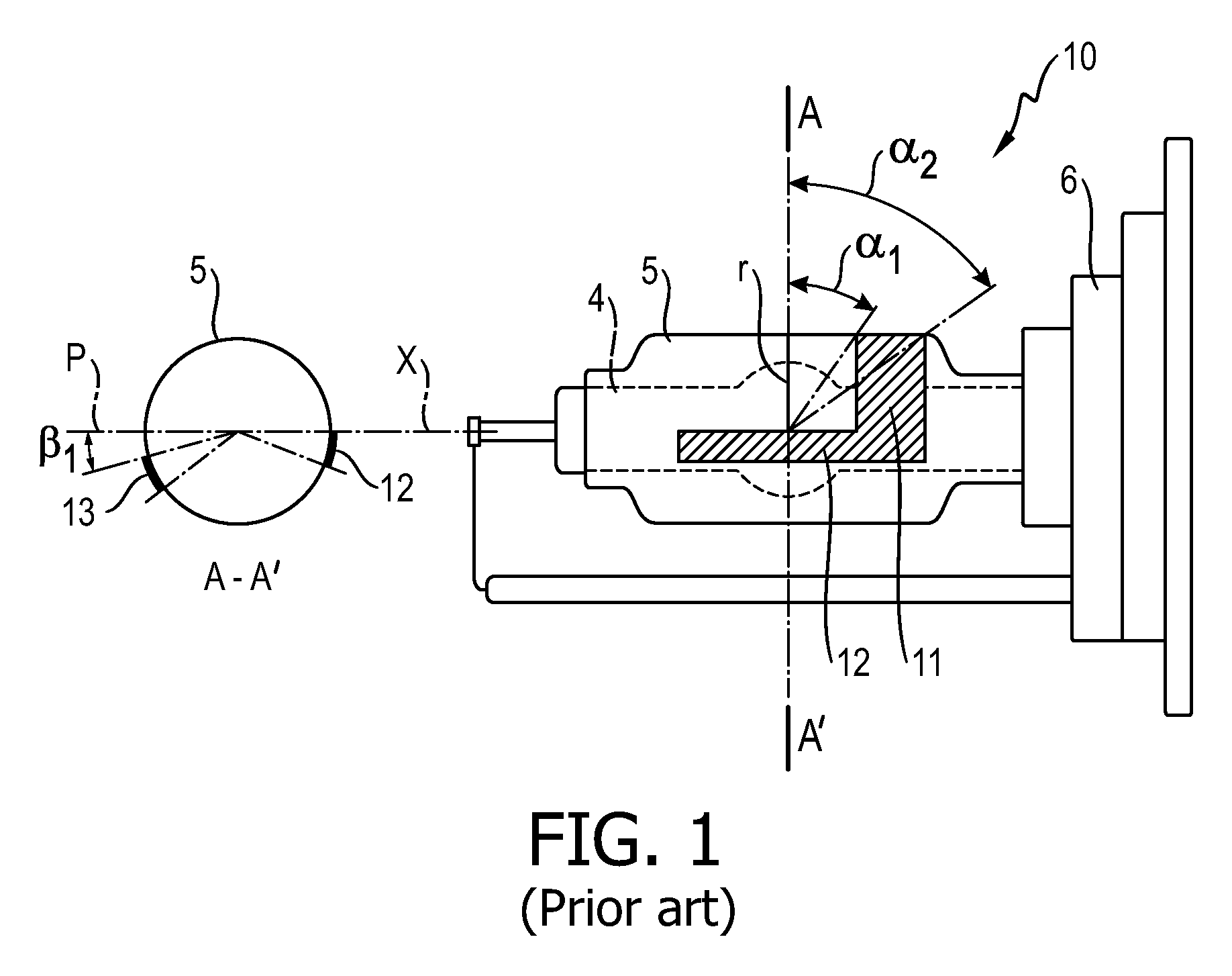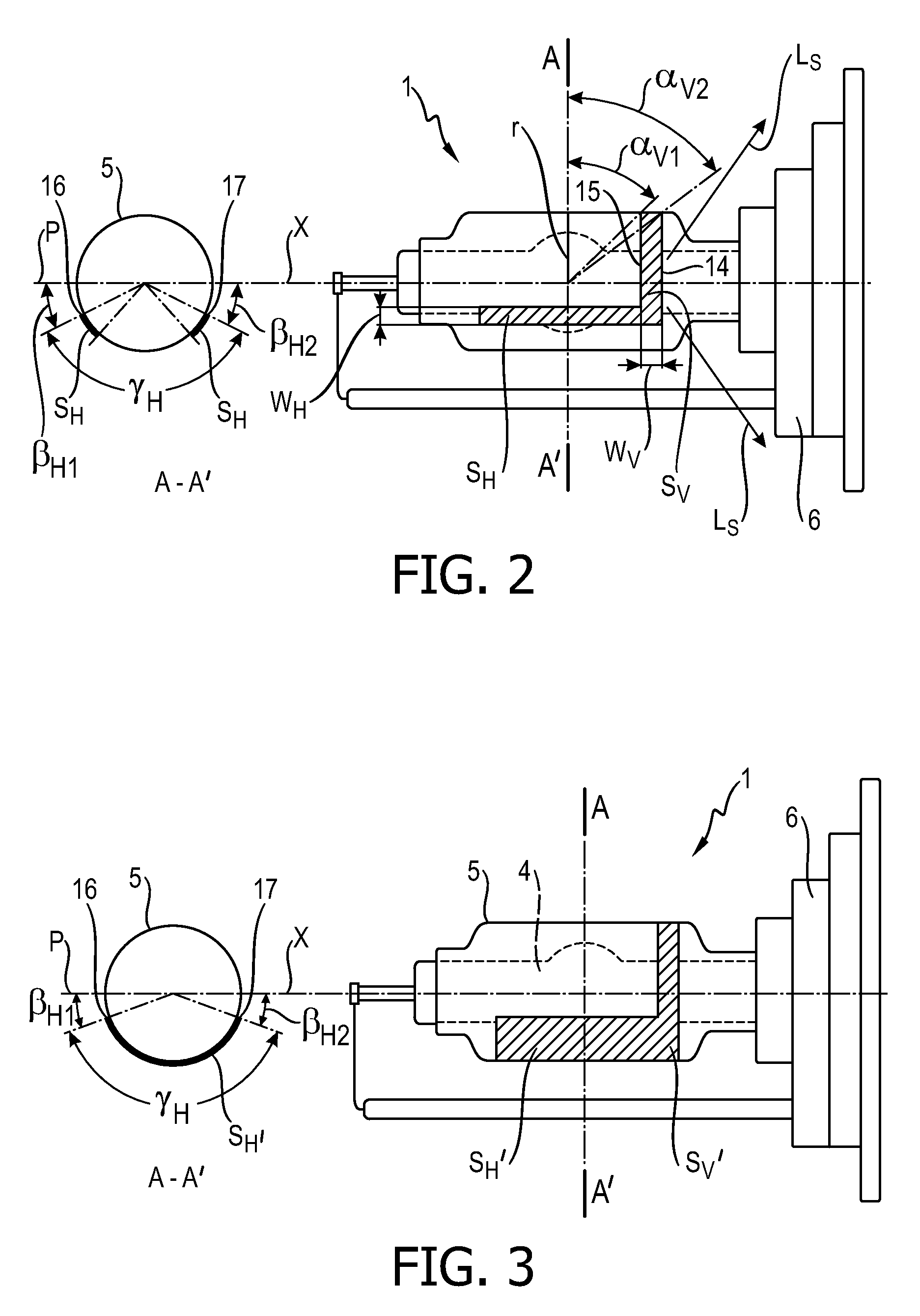Gas-discharge lamp
a technology of gas discharge lamp and discharge lamp, which is applied in the direction of fixed installation, transportation and packaging, lighting and heating equipment, etc., can solve the problems of substantial light loss, effective waste, and light fraction, and achieve the effect of increasing the width of the arc, increasing the light intensity, and increasing the light outpu
- Summary
- Abstract
- Description
- Claims
- Application Information
AI Technical Summary
Benefits of technology
Problems solved by technology
Method used
Image
Examples
Embodiment Construction
[0045]FIG. 1 shows a cross section of a prior art gas-discharge lamp 10, with a partial coating 11, 12 comprising a circumferentially arranged stripe 11 and a pair of longitudinally arranged stripes 12, 13. The lamp 10 shown corresponds to a D4R lamp, with a ballast 6 or base 6, for use in an automotive headlight assembly. The width of the circumferential stripe 11 is defined in the appropriate regulation, in this case ECE R99, by the angles α1, α2 subtended at the lamp centre between a radius r and points on the outer edges of the circumferential stripe 11. The regulation ECE R99 requires that the smaller angle α1 be 45°±5°, and that the larger angle α2 be at least 70°. On a D4R lamp, such a circumferential stripe 11 can therefore have a width of about 8.3 mm, and usually covers a substantial part of the underlying pinch region. A pair of longitudinal stripes 12, 13 is arranged one of each side of the lamp 10. This is illustrated in the cross-section A-A′ shown on the left of the d...
PUM
 Login to View More
Login to View More Abstract
Description
Claims
Application Information
 Login to View More
Login to View More - R&D
- Intellectual Property
- Life Sciences
- Materials
- Tech Scout
- Unparalleled Data Quality
- Higher Quality Content
- 60% Fewer Hallucinations
Browse by: Latest US Patents, China's latest patents, Technical Efficacy Thesaurus, Application Domain, Technology Topic, Popular Technical Reports.
© 2025 PatSnap. All rights reserved.Legal|Privacy policy|Modern Slavery Act Transparency Statement|Sitemap|About US| Contact US: help@patsnap.com



